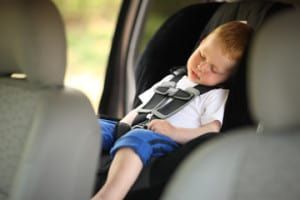 It can’t be easy to explain to a child why a family member has a car breathalyzer or ignition interlock on their car. While there are certainly lessons that can be found in those discussions, most of the time we try to shield children from our less-than-stellar choices, like drinking and driving. For a grandmother in Florida, however, her part in a DUI while driving her grandchild left no room for confusion about the charges she will be facing.
It can’t be easy to explain to a child why a family member has a car breathalyzer or ignition interlock on their car. While there are certainly lessons that can be found in those discussions, most of the time we try to shield children from our less-than-stellar choices, like drinking and driving. For a grandmother in Florida, however, her part in a DUI while driving her grandchild left no room for confusion about the charges she will be facing.
Florida’s DUI child endangerment laws allow a judge to increase the fines and penalties for the conviction. A child typically has no choice except to ride in a vehicle with their parent, grandparent or caregiver, even if that person has been drinking. As the most innocent of victims in a DUI, children are often harmed when an accident occurs because of reckless driving, or their “adult” has neglected to properly use a seat belt or car seat because of their level of intoxication.
Grandparents are not immune from driving under the influence, and there are plenty of factors that can affect that decision, including:
- Age: as we age, we may not be able to process alcohol to the same degree as in our youth.
- Medications: plenty of prescription or over-the-counter drugs increase the effects of alcohol.
- Physical limitations: alcohol leads to a slower response time, and when mobility is impacted over the years, the combination can be devastating.
- Habit: they’ve been drinking all their lives and never hurt anyone.
No grandparent should ever have to explain a DUI or other consequence of drinking and driving to their grandchildren, and that starts with not taking those risks to begin with. When you are sober behind the wheel, you’re showing more than responsible drinking habits, you’re giving your grandchildren the full benefit of your wisdom and love, a gift they’ll treasure and give back to the next generations as safe drivers.

 Biting IS an Aggravating Factor in Your Virginia DUI
Biting IS an Aggravating Factor in Your Virginia DUI